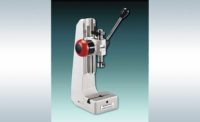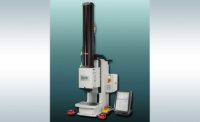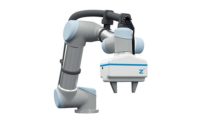Polyfab uses process monitoring systems from Kistler based on cavity pressure measurement to sustainably optimize the highvolume production of plastic parts for various industries. Thanks to them, it was possible to reduce the number of faulty parts in injection molding to a record-breaking 1 PPM (parts per million).
Since 1971, Polyfab Corp. has been a custom thermoplastic injection molder. The American company supports the plastics molding industry needs of four major markets: medical, packaging, industrial, and commercial. In order to remain competitive in the ever-changing plastic molding industry, they must continuously adapt their monitoring processes with the ultimate goal of producing zero-defect quality assured parts.
Brian Burhop is a Project Engineer with over 16 years of experience at Polyfab Corp. located in Sheboygan, Wisconsin. He takes the quality of their molded parts seriously. Monitoring the molding process for suspect parts prior to packaging or assembly easily with guaranteed results is key. For nine years now, cavity pressure technology with sensors and systems of Kistler have provided a highly effective, reliable basis for automated inspection.
Integrated quality assurance
increases customer satisfaction
Burhop says, “Our partnership with Kistler came about because Polyfab Corp. is very much a molder based on scientific principles which we employ to establish and monitor our molding processes. Process monitoring and containment is very important for our high-volume jobs. Our decision was based on very important factors, such as how user-friendly the monitoring equipment is, how easy it is to acquire and interpret the data, how easily configurable it is with our machinery, and how easy it is to incorporate Kistler’s sensors into the mold itself. Kistler’s products were really hands down the best choice for us in all those categories. Approximately 66% of Polyfab Corp. machinery is now equipped with Kistler monitoring and sensor technology.”
The first challenge Burhop and his team faced was to greatly improve the accuracy of short-shot monitoring for a dispenser lid with a living hinge. To reduce non-fills during the injection molding process, the pressure at end of fill was monitored with a flush mounted sensor directly in the cavity. This allows for more accurate setting of the required minimum pressure which is affected by process variables including injection speed, and melt temperature.
Burhop states, “Polyfab’s customer return score prior to implementing Kistler in 2009 was above 10,000 PPM (parts per million). In 2017, we molded approximately 200 million parts and our rate for customer returns was 98 PPM, which is ‘world class’ performance. Our 2018 year-to-date PPM customer return rate is now ‘1 PPM’. This represents a drastic improvement after implementing Kistler’s process monitoring systems (ComoNeo/ CoMo Injection), as well as Kistler’s direct and indirect cavity pressure sensors into our machinery.”
Automated assembly thanks to cavity pressure sensors
Polyfab Corp. has also integrated Kistler’s sensors into their automated assembly process, producing very positive results. Burhop explains, “For automated assembly in terms of parts which have a lot of value added as they step through the assembly process, Kistler’s sensors ensure that we are not assembling parts with suspect (defective) plastic components. For example, we have a commercial inkjet cartridge that we have completely automated the assembly.
The cell incorporates two molding machines, six robots, and two 4-cavity molds. We have placed a Kistler sensor in each one of those cavities so if there is a suspect or questionable shot, it segregates it so that those parts don’t enter the assembly process. This has proven very beneficial and valuable to our automated assembly application needs.”
Process monitoring systems of Kistler save valuable time, reduce costs, and increase ROI
Kistler’s process monitoring systems have been saving time, reducing costs, and increasing the Return on Investment (ROI). Burhop says, “From my perspective: reducing re-validations was key. For instance, if we need to validate a tool in another press, either for capacity reasons or for risk mitigation for a customer, Kistler’s technology has made the process of duplicating a process much more straightforward and scientific in terms of the acquisition of data and the actual pressure curve data from the cavity.”
Bob Hendricks, Product Sales Manager with Kistler, who worked closely with Burhop, further explains this time-saving benefit of incorporating Kistler’s process monitoring systems and sensors: “When you have a reference curve that represents the part quality, and you need to move it from one machine to another, the benefit is you no longer have to revalidate the whole process every time because that reference curve remains valid on any machine.”
To learn more about perfecting injection molding production to the highest quality visit Kistler.com or contact your local sales representative at Sales.Us@kistler.com





